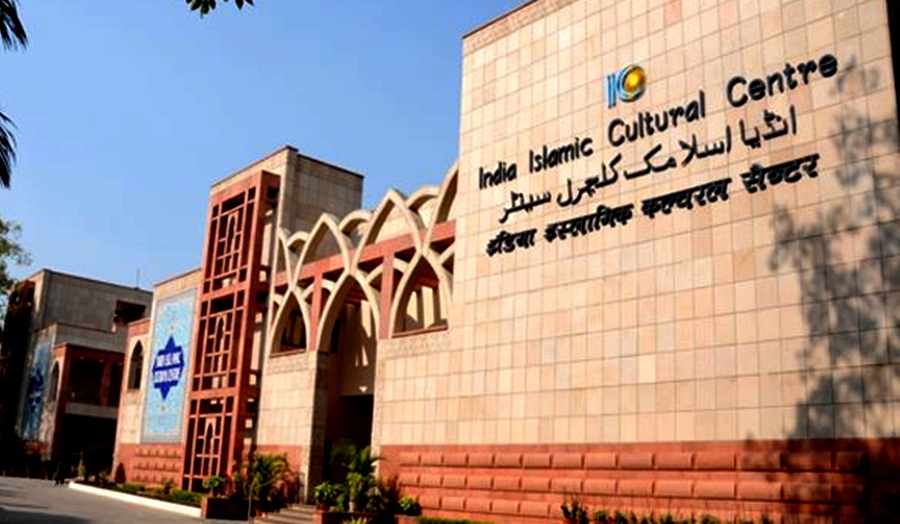New Delhi, July 20 (IANS) The Delhi High Court’s direction to the secretary and treasurer of the Indian Islamic Cultural Centre (IICC), which is experiencing a decline due to the ongoing struggle for the position of its President, to sign cheques of salaries and miscellaneous expenses of its staff has pleased the plaintiffs.
The time has come directing how crucial it is for the IICC — a registered society under the Societies Registration Act, 1860 — to prioritise its goals and objectives in the best interest of the general public.
Justice Yogesh Khanna was dealing with an application filed in the main suit, which was filed under the provisions of Section 92 of the Code of Civil Procedure (CPC) on behalf of the plaintiffs, Matloob Ahmad and Sumit Kumar — the members of the society — represented by Senior Advocate Sacchin Puri.
This instant application was filed under Order 39 Rule 1 and 2 of the CPC seeking interim directions to release the salary and other miscellaneous expenses, including electricity and security, of the employees at IICC, said advocate Parveen Kumar for plaintiffs.
The salary issue stems from the main suit, which deals with the disputes between the parties — IICC and its President Sirajuddin Qureshi.
The cheques were to be signed by the President, Secretary and Treasurer jointly but since Quereshi had attained the age of 75 years on June 14, 2023, he cannot hold the post of President as per the Clause No.8 of Memorandum of Association.
The main suit is to protect the IICC from further deterioration and mismanagement at the hands of Qureshi and other members of the Board of Trustees comprising 11 persons — the president, vice president, seven elected members by the General Body and two members nominated by the Government of India.
It is contended that in the suit that under the presidency of Qureshi, IICC has deviated from its original objectives and operates in a whimsical and arbitrary manner, breaching settled legal principles.
“Qureshi being elected in 2004 as the president of the Indian Islamic Cultural Centre has not framed any bye laws to run the society and is trying to establish complete monopoly/control over the functioning of the Indian Islamic Cultural Society in a whimsical and arbitrary manner contrary to settled principles of law applicable,” it has been argued.
According to the petition, Qureshi seeks to exert personal control, opening unauthorised restaurants and cafes on the premises. The situation has escalated due to a proposed amendment of the Memorandum of Association to remove the upper age limit, with questionable legitimacy.
“Qureshi and other members of the Board of Trustees have been aided and abetted by the other members of the Board of Trustees who have overtly or tacitly supported Mr. Sirajuddin Qureshi in the various acts of breach of trust,” it reads.
It is alleged that Quereshi, on May 9, issued a notice convening a special meeting of the general body on May 24 in order to amend the Memorandum.
The secretary of the IICC objected to the convening of a special meeting.
“The hidden agenda behind convening the special meeting of the general body was to amend the memorandum of association inter alia to remove the upper age limit of 75 years as provided in Clause 8 (d) of the Memorandum of association…,” it is alleged.
Thus, in view of the serious tussle going on between the different members of the executive and the board of trustees, the functioning of the IICC has been affected.
On May 23, the high court had issued directions halting convening any meetings till the next date of hearing, July 24, and had impleaded the secretary and treasurer.
Qureshi was also directed by the court not to convene any future AGM or Special General Body Meetings.
In the latest requiring immediate indulgence by this Court by appointing an administrator so that further damage is contained in the interest of members and public at large.
Given the prevailing issues and the interest of members and the public, the suit seeks the appointment of an administrator or a court-appointed committee to manage the affairs and business of the IICC during the forensic financial audit and for conducting fresh elections (for the post of president) according to the Memorandum of Association.
The suit seeks direction to the administrator or court-appointed committee to conduct forensic financial and membership audits, investigate meeting minutes, and rectify any discrepancies or deviations in line.
A decree is sought directing the administrator or court-appointed committee to frame bye laws as per the Memorandum of Association.
“A decree of permanent injunction against Mr. Sirajuddin Qureshi and other members of the Board of Trustees from interfering in the management and affairs of the Indian Islamic Cultural Society,” the plaintiffs have sought.
It is further contended that Qureshi is ineligible to hold any executive position, including president, in the Board of Trustees as he turned 75 years old on June 14.
A mandatory injunction is sought against Qureshi and other Board of Trustees members to preserve all records related to financial affairs and meeting minutes during Qureshi’s tenure as president of the IICC.

